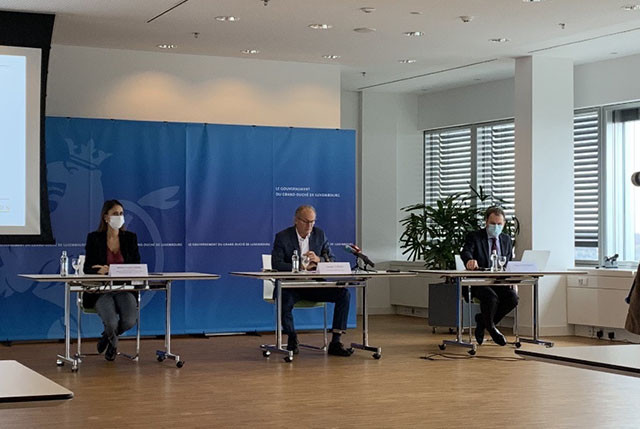The ongoing covid-19 crisis has brought about a number of lifestyle changes, such as teleworking and a rapid increase in e-commerce. This raises new questions with regards to the organisation and reorganisation of social and living spaces, particularly in urban areas.
“In a moment like this it is important to look to the future, and we need to figure out how we can get our country to be more sustainable, more crisis-proof and above all we need to strengthen our country locally and regionally in order to improve resilience,” Turmes noted.
In this context, in June 2020 the department of spatial planning within the ministry launched an international urban-architectural and landscape consultation aimed at professionals, universities and researchers with expertise in spatial and urban planning and development.
The “Luxembourg in Transition” pilot study, inspired by the Greater Geneva consultation, is aimed at enabling a creative and dynamic exchange of different expert teams that will develop solutions for a “towards 2050” ecological transition for Luxembourg and the greater region. The goal is to find solutions that allow for the creation of more living spaces and urban development while protecting biodiversity and moving toward zero carbon emissions as quickly as possible, the minister explained.
Out of initial 30 proposals, 10 teams were selected for the first stage of the three-phase project that is supposed to end around December 2021. The number of expert teams will be narrowed down after each stage so that only three teams will present their final proposals on a sustainable development of Luxembourg and its neighbouring countries.
Turmes also highlighted that, in addition to the different teams, a variety of specialised consultation bodies were put together, including an interministerial, scientific, consultative and citizen committee to get actors from all concerned areas involved.
However, Turmes emphasised that the project was in fact only a brainstorm, and it will be up to the ministry and the government to decide whether one or more of the proposals developed by the teams will be adopted as a solution and integrated into the 2022 PDAT (Programme directeur de l’aménagement du territoire).
But brainstorming comes at a price: the 2-year project is set to cost around €1.4m. Minister Turmes, however, argued that--especially in times of a global pandemic--this money would be well-invested. Turmes added, “I think it is important that especially in times of corona, where fundamental questions about the organisation of society are surfacing, as a ministry trying to make spatial optimisations, we need to give ourselves these means to look beyond what has already been there.”
